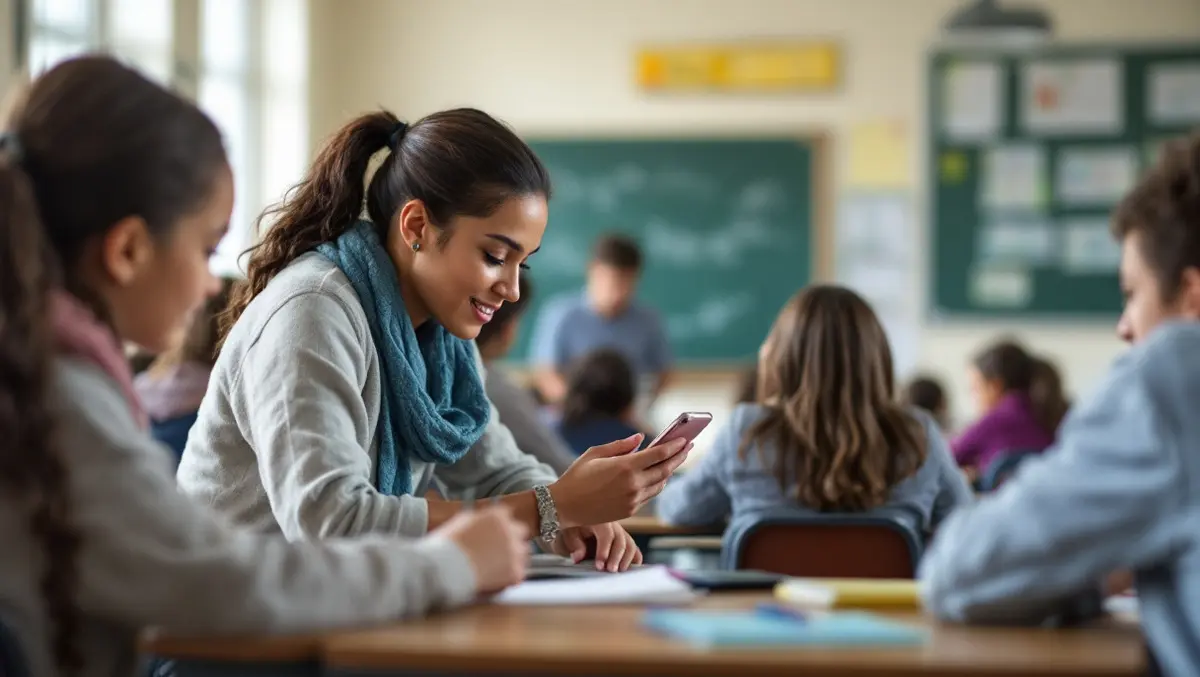
Windsor calls for total smartphone ban in UK schools
Lady Frederick Windsor has stated that smartphones are "impossible" to make safe for children and called for their ban in schools.
The actress, also known as Sophie Winkleman, said that the use of smartphones among young people could result in both physical and emotional consequences.
Winkleman's comments come as questions continue to be raised about children's access to technology and the role educational institutions play in supervising device usage. Her remarks reflect growing concerns about the potential negative impact of smartphones on physical health, such as vision problems and sleep disturbances, as well as emotional health, including cyberbullying and social anxiety.
The issue of smartphone safety for children has gained increased attention among policymakers, educators and parents. In recent years, debates have centred on whether strict limits or outright bans on phones in schools could help minimise risks associated with technology use by minors.
Iona Silverman, IP and Media Partner at law firm Freeths, commented on the regulatory landscape following the publication of new rules by Ofcom, the UK's communications regulator, which are designed to bring technology providers into compliance with the Online Safety Act.
"On the legal side, Ofcom has finally published the rules which tech companies must follow in order to comply with the Online Safety Act. Providers of services likely to be accessed by UK children have until 24 July to comply." Silverman stated.
"While Ofcom is taking all the right steps, we'll need to see significant fines for non-compliance to give their position real teeth and to push tech providers to do the right thing by children. That needs to be complemented by parents and schools playing their part too. While a complete ban on smartphones in schools, or on social media for under-16s might be hard to enforce, those are options the Government should consider if it wants to tackle online safety and take the wellbeing of young people seriously." She added.
These remarks address the implementation of legislative frameworks designed to enhance the safety of minors online. The Online Safety Act puts obligations on digital service providers accessed by children, setting out requirements to minimise exposure to harmful content and to put robust safeguards in place.
Ofcom's new rules outline how technology firms must protect minors, giving companies a deadline to update their compliance systems. The regulator is also empowered to investigate and impose penalties for companies that fail to meet standards. With the deadline approaching, technology companies are expected to review and potentially update their practices regarding child safety and data privacy.
Stakeholders in the education sector and children's rights organisations have often called for a collaborative approach that involves parents, schools, technology providers, and regulators. Silverman also highlighted the importance of a multi-faceted strategy, suggesting that regulatory action must be matched by involvement from families and educational institutions.
The potential for banning smartphones in schools continues to be debated, with supporters arguing that it would protect students from distractions and online harms during the school day. Critics have raised concerns about possible enforcement challenges and limiting access to digital learning tools.
Discussions also persist over introducing restrictions on the use of social media platforms by those under 16 years of age, with some advocating for legislative interventions to further reduce children's exposure to unhealthy online environments.
The Government has not ruled out stronger measures, and ongoing public and expert input is expected to shape policy decisions on the issue of smartphones and children's online safety.


